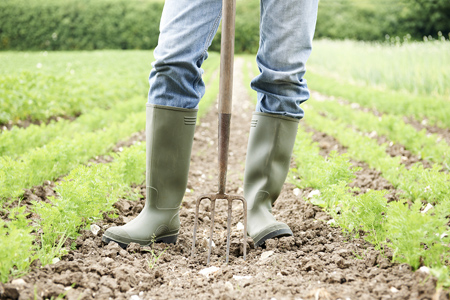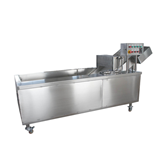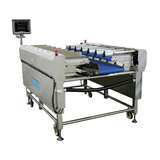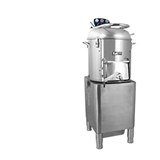Love your soil
It goes without saying that good soil is the foundation of any healthy fruit crop, but I’ll say it again. Good soil is dark and crumbly to touch, but there's a bit more to it than that to make sure it's genuinely healthy. Keep it well drained so oxygen can reach the roots of your crop trees. If your soil becomes unduly wet due to heavy rain, stay off it until it dries. Driving or walking on wet soil packs it like plasticine, which pushes the air out and stops water getting in. Add compost – dead plants, roots and leaves – to promote nitrogen and get earthworms wriggling enthusiastically among your crop roots – a great way to instil health.
Go organic
Again, it almost goes without saying these days as organic produce is starting to become the expectation rather than the exception. Organic growing with no nasty chemicals does wonders for the health and vitality of your crops. And while no pesticides means no obvious way to eradicate pests, the combination of natural predators and natural fertilisers supporting more robust plants will usually do the trick.

Rotate your crops
Crop rotation might seem like an incredibly laborious process just to give your plants a different perspective on life, but it's actually crucial. For a start moving crops yearly stops any plant-specific diseases getting settled in for the long haul. It also allows new crops to enjoy the nutrients left behind by the previous crops. Your three main crop rotation groups are potatoes and tomatoes; brassicas, such as cabbages and broccoli; and legumes, carrots, parsnips, beans and so on. Read up on your specific crops and rotate them until they're dizzy with good health.
Go easy on fertiliser
Fertiliser is not an all-you-can-eat buffet for plants; too much can be worse than none at all. Seek advice as to the right type of fertiliser and right amounts for each of your crops. You’ll end up saving a lot of money and your crops will still be around to thank you for not overfeeding them.
Disinfect your tools
No joke. You might think tools are tools and they're no dirtier than the ground they're working in. Well, that’s true, but if one crop is diseased, your tools will be the perfect carrier to take that infection on a merry trip around every crop in your garden. Always use clean, disinfected tools and get in the habit of cleaning them after every use, not before you begin the next.






